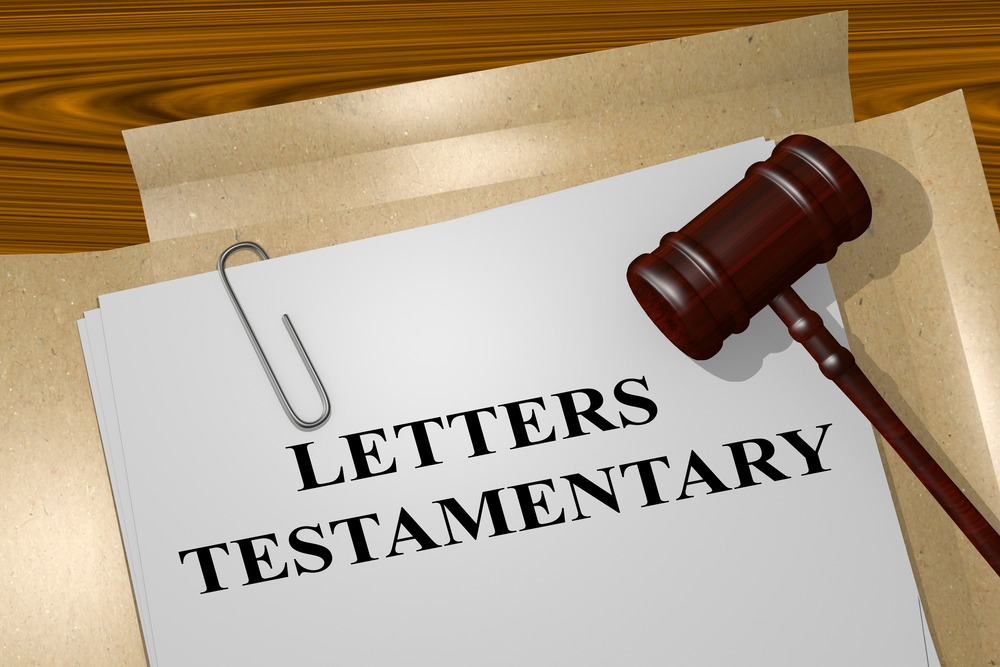Process of Obtaining a Letter of Testamentary: A Comprehensive Guide

Introduction to Letters of Testamentary
When an individual passes away, their estate must go through a legal process known as probate. This process is overseen by the probate court and involves the distribution of the deceased person’s assets according to their will or, if there is no will, according to state laws of intestate succession. A crucial step in this process is obtaining a letter of testamentary, a legal document that grants authority to the individual named as the executor or personal representative of the estate.
The letter of testamentary serves as official recognition from the probate court, authorizing the executor to act on behalf of the estate. This document provides the legal power to manage and distribute the deceased person’s assets, pay outstanding debts, and handle any other necessary tasks related to the administration of the estate.

Understanding the Importance of a Letter of Testamentary
A letter of testamentary is a critical component of the probate process for several reasons:
- Legal Authority: Without this document, the executor or personal representative has no legal authority to act on behalf of the estate. Financial institutions, governmental agencies, and other parties may refuse to cooperate or provide information without proof of the executor’s authority.
- Asset Management: The letter of testamentary allows the executor to access and manage the deceased person’s assets, including bank accounts, investment accounts, real estate, and personal property.
- Debt Settlement: The executor can use the letter of testamentary to settle outstanding debts and liabilities of the deceased person, ensuring creditors are appropriately notified and paid.
- Estate Administration: This document grants the executor the power to handle various tasks related to the administration of the estate, such as filing tax returns, distributing assets to beneficiaries, and representing the estate in legal matters.
What happens if an executor tries to act on behalf of an estate without a letter of testamentary?
If an executor attempts to act on behalf of an estate without obtaining a letter of testamentary, they may face significant challenges and legal consequences. Financial institutions, government agencies, and other parties may refuse to cooperate or provide information, as the executor lacks the legal authority to represent the estate. Additionally, any actions taken without proper authorization could be considered invalid or even illegal, potentially leading to personal liability for the executor.
The Process of Obtaining a Letter of Testamentary Obtaining a letter of testamentary typically involves the following steps:
- Filing a Petition: The executor or personal representative must file a petition with the probate court in the county where the deceased person resided. This petition typically includes the last will and testament (if one exists), along with other supporting documents.
- Providing Proof of Death: The court will require a certified copy of the death certificate as proof of the individual’s passing.
- Notice to Interested Parties: The court may require the executor to provide notice to potential heirs, beneficiaries, and creditors, informing them of the probate proceedings.
- Court Hearing: In some cases, the probate court may schedule a hearing to review the petition and ensure all legal requirements are met.
- Appointment and Issuance: If the court finds the petition and supporting documents to be in order, it will appoint the executor or personal representative and issue the letter of testamentary.
It’s important to note that the specific requirements and procedures for obtaining a letter of testamentary may vary depending on the state and local jurisdiction. It’s advisable to consult with an experienced probate attorney to ensure all necessary steps are taken correctly and in a timely manner.

Responsibilities of the Executor or Personal Representative
Once the letter of testamentary is obtained, the executor or personal representative assumes significant responsibilities in managing the estate. These responsibilities may include:
- Locating and Securing Assets: The executor must identify, locate, and secure all assets belonging to the deceased person, including real estate, bank accounts, investments, and personal property.
- Notifying Creditors: The executor is responsible for notifying creditors of the deceased person’s passing and handling outstanding debts and liabilities.
- Filing Tax Returns: The executor must file any necessary tax returns on behalf of the deceased person and the estate.
- Distributing Assets: According to the terms of the will or state laws of intestate succession, the executor must distribute the remaining assets to the appropriate beneficiaries or heirs.
- Maintaining Records: Throughout the probate process, the executor must maintain accurate records of all transactions, expenses, and distributions related to the estate.
- Representing the Estate: The executor may need to represent the estate in legal matters, such as resolving disputes or handling any potential litigation.
What happens if an executor fails to fulfill their responsibilities properly?
If an executor fails to fulfill their responsibilities properly, they may face serious legal consequences. Potential issues include:

- Personal Liability: The executor may be held personally liable for any mismanagement or mishandling of the estate’s assets, including improper distributions or failure to pay debts.
- Removal from Office: The probate court has the authority to remove an executor who is not fulfilling their duties or acting in the best interests of the estate and beneficiaries.
- Legal Challenges: Beneficiaries or creditors may challenge the executor’s actions or decisions, potentially leading to legal disputes and additional court proceedings.
To avoid these potential consequences, it is crucial for the executor to act diligently, seek legal guidance when necessary, and prioritize the proper administration of the estate according to the deceased person’s wishes and applicable laws.
The Role of Probate Attorneys
Navigating the probate process and obtaining a letter of testamentary can be complex and overwhelming, especially for those unfamiliar with the legal system. This is where the expertise of a probate attorney can be invaluable.
Probate attorneys are legal professionals who specialize in the administration of estates and the probate process. They can provide guidance and representation throughout the entire process, including:
- Preparing and Filing Necessary Documents: A probate attorney can ensure all required documents, such as petitions and notices, are properly prepared and filed with the court.
- Representing the Estate in Court: If court appearances or hearings are required, a probate attorney can represent the estate and advocate for the executor’s interests.
- Advising on Legal Matters: Probate attorneys can provide valuable legal advice on matters related to estate administration, such as asset distribution, tax implications, and creditor claims.
- Resolving Disputes: In the event of disputes or challenges from beneficiaries or creditors, a probate attorney can assist in resolving these issues through negotiation or litigation.
While hiring a probate attorney may involve additional costs for the estate, their expertise and guidance can help ensure the proper administration of the estate, minimize potential legal issues, and protect the executor from personal liability.

Conclusion
Obtaining a letter of testamentary is a crucial step in the Texas probate process, granting the executor or personal representative the legal authority to manage and administer the deceased person’s estate. This document serves as official recognition from the probate court and provides the necessary powers to handle various tasks, such as asset management, debt settlement, and distribution of assets to beneficiaries. The process of obtaining a letter of testamentary can be complex, involving various legal requirements and procedures that may vary depending on the state and local jurisdiction. Seeking the guidance of an experienced probate attorney can be invaluable in navigating this process smoothly and ensuring compliance with all applicable laws and regulations. Once the letter of testamentary is obtained, the executor or personal representative assumes significant responsibilities in managing the estate. Fulfilling these duties diligently and in good faith is crucial to avoid potential legal consequences and ensure the proper administration of the deceased person’s wishes and assets.









